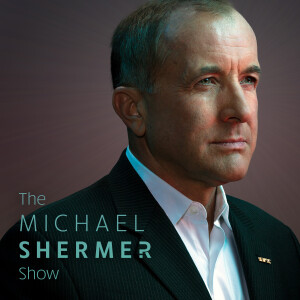
287. Bobby Azarian — Life, the Universe, and Cosmic Complexity
 2022-07-12
2022-07-12
In this conversation based on his new book, The Romance of Reality, cognitive neuroscientist Bobby Azarian explains how for centuries the question Why do we exist? was the sole province of religion and philosophy. According to the prevailing scientific paradigm, the universe tends toward randomness; it functions according to laws without purpose, and the emergence of life is an accident devoid of meaning. But Azarian argues that out of complexity science and the phenomenon known as emergence, a new cosmic narrative is taking shape: Nature’s simplest “parts” come together to form ever-greater “wholes” in a process that has no end in sight, and that life is moving toward increasing complexity and awareness. Carl Sagan was right when he said of humanity that “we are a way for the cosmos to know itself.”
Shermer and Azarian discuss: laws of thermodynamics and directionality • how complexity formed after the Big Bang • laws of nature: discovered or created or both? • Stephen Jay Gould and contingency vs. necessitating laws of nature • convergent evolution and directionality in evolution • the left wall of simplicity • leading theories for the origin of life • complexity theory and emergence • consciousness, the self, and other minds • free will, determinism, compatibilism, panpsychism • Is there purpose in the cosmos?
Bobby Azarian is a cognitive neuroscientist (PhD, George Mason University) and a science journalist. He has written 100+ articles — many reaching millions of views — about science, technology, and philosophy for publications including The Atlantic, New York Times, BBC Future, Scientific American, Slate, Huffington Post, Quartz, Daily Beast, Aeon, among others. Azarian has authored numerous academic papers, published in prestigious peer-reviewed journals such as Human Brain Mapping, Cognition & Emotion, and Acta Psychologica. His blog “Mind in the Machine,” hosted by Psychology Today, has received over 8 million views. Azarian worked with The Atlantic and Huffington Post to create viral videos, which he helped write the scripts for and narrated.
More Episodes
Create your
podcast in
minutes
- Full-featured podcast site
- Unlimited storage and bandwidth
- Comprehensive podcast stats
- Distribute to Apple Podcasts, Spotify, and more
- Make money with your podcast
It is Free
- Privacy Policy
- Cookie Policy
- Terms of Use
- Consent Preferences
- Copyright © 2015-2024 Podbean.com





